| |
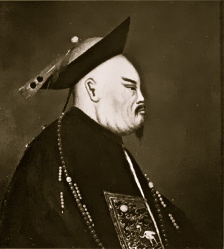
Lin Tse-Hsu
(1785-1850) was the Chinese Commissioner
in Canton whose actions precipitated the Opium Wars (1839- 1842) |
 |
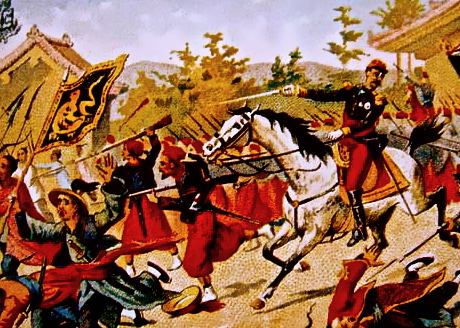 |
|
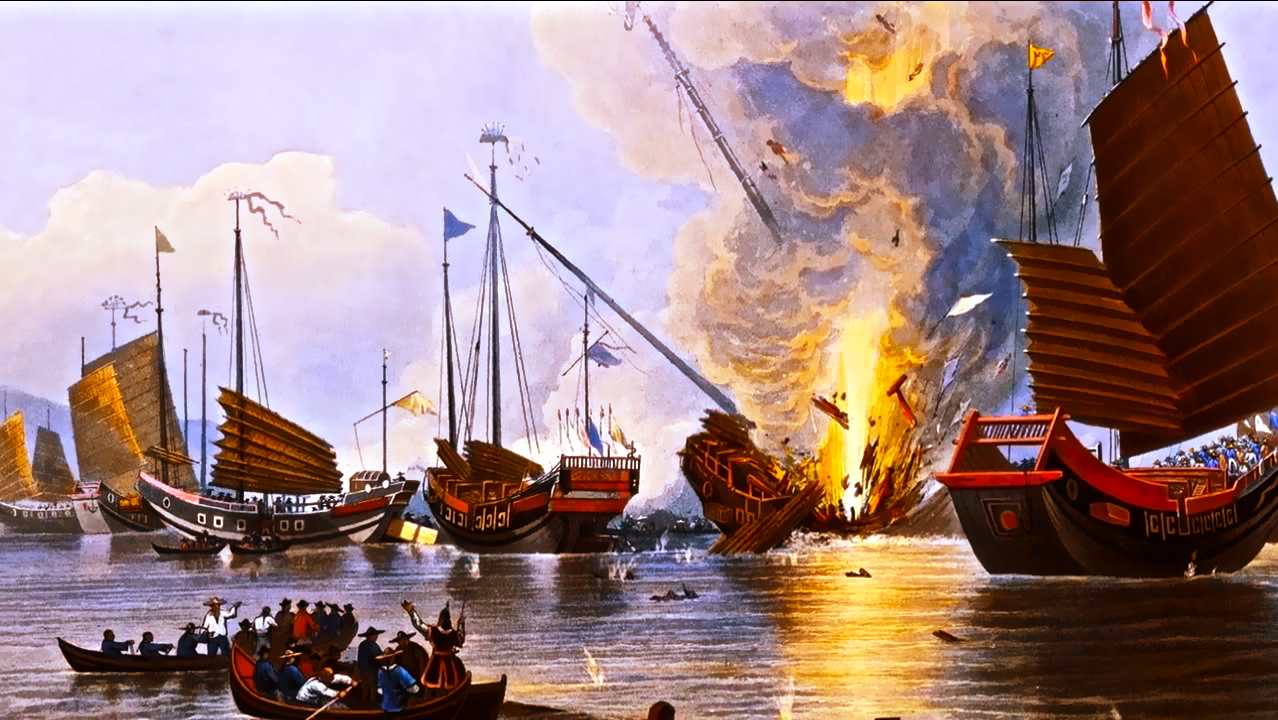 |
|
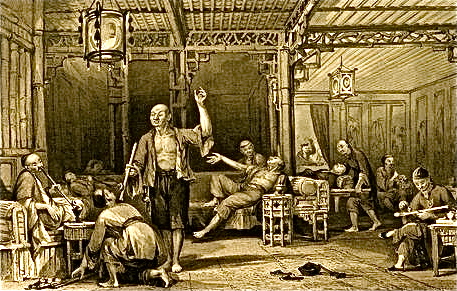
Opium Den
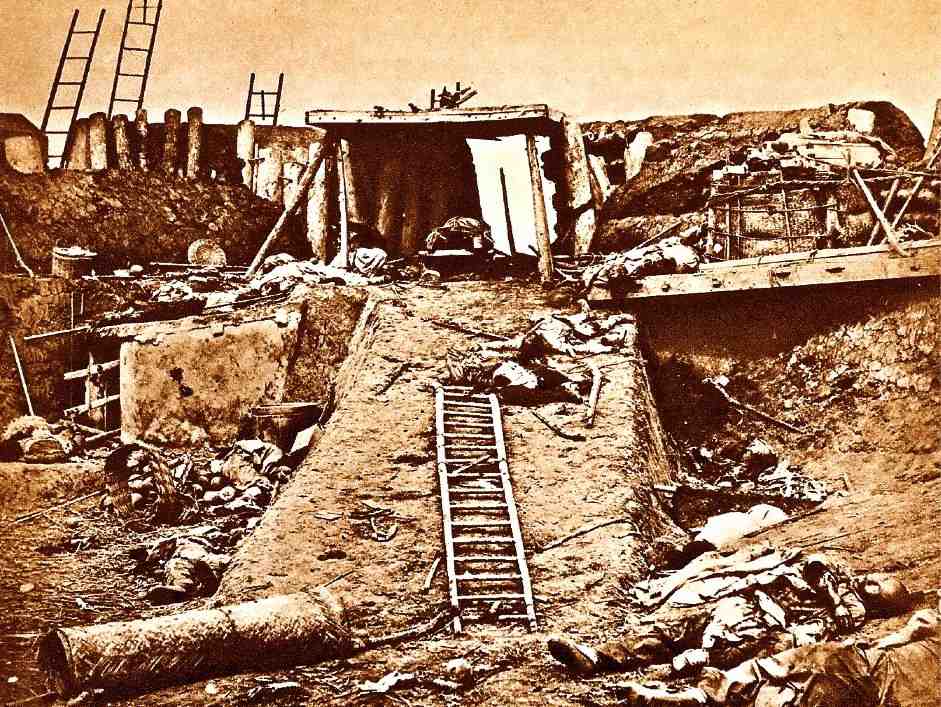
Taku Fort after being taken by the
British and French on May 20th, 1858 |
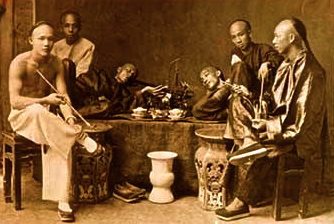
The Opium Wars
The Opium Wars arose from China's attempts to suppress
the opium trade
The
Opium Wars
were a terrible time for the Chinese
people in their history. Taking place roughly in the years 1839-42 and
1856-60, China underwent radical changes that left many dead and forced
upon China modernization and an undesired entrance into the
international trade market. The
Opium Wars were really about Britain's
massive economical problems, the British trader's financial interests,
and Britain wanting exclusive rights in China.
First Opium War . . 1839-42
The Opium War was a display of how the greed of one
country can destroy the very lives of millions of people in another
country. Britain would be categorized as the greedy nation and China the
victim. Even though Britain was the main aggressor in this war, there
were also other nations involved in the degrading of China's culture,
they were France, Russia, and even America. All of these countries
took
advantage of China by sending chests of opium with about 150 pounds of
it in each barrel to china and selling it overpriced. In fact Britain
sent 2,330 chests of opium in 1788, then 4,968 in 1810, then increased
that to 17,257 chests of opium in 1835, which was worth millions of
British pounds! |
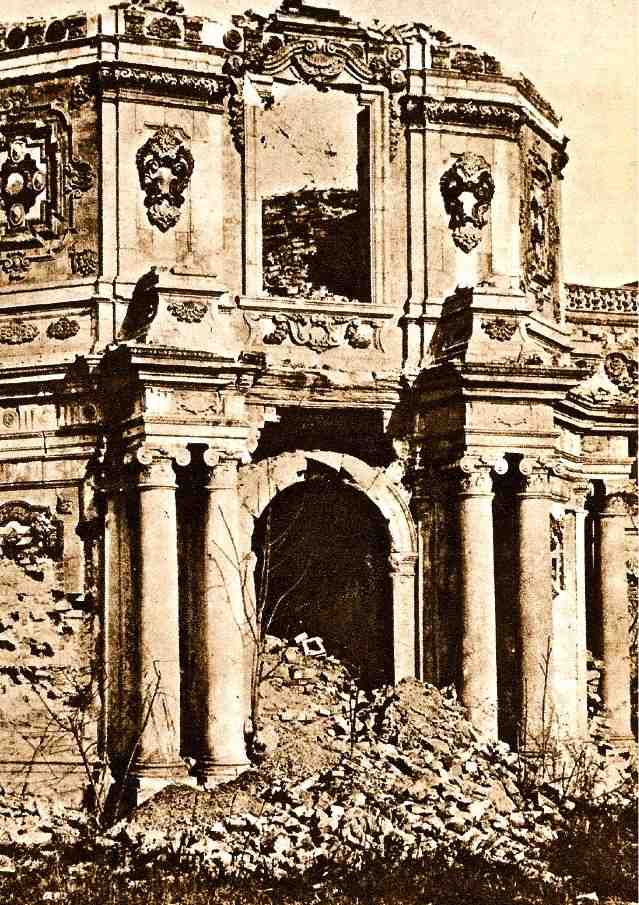
Ruins of the Imperial Summer Palace, October 1860 |
Opium
was primarily used for medicinal purposes, but
later became too addictive and was banned. The
use of opium, after the
ban, was especially common near the port city of Canton, where foreign
merchants smuggled large quantities of the drug into China. In 1839 the
Chinese government confiscated all opium warehoused at Canton by British
merchants. The Chinese confiscated and destroyed over 20,000 chests of
opium. A year later, after much debate and consideration, Britain
declared war on China and demanded reparations for the destruction of
British private property.
Second Opium War . . 1856-60
Since the war with Great Briton (1839-42) which had
forced the Chinese to cede the unpopulated island of Hong Kong and to
open Canton to foreign residence and commerce, there had been constant
friction arising from the continuing illegal importation by British
merchants of millions of pounds worth of
opium from India
every year.
War broke out again when a British-registered Chinese-owned ship, the
Arrow, was seized at Canton in October 1856 by Chinese officials. The
French joined the British in this war, following the murder of a French
missionary in the interior of China. In June 1857 the Chinese fleet was
destroyed by the British, and six months later the British and French
fleets bombarded and took Canton, then sailed north towards the capital
in Peking (modern Beijing). The Taku Forts commanding the entrance to
Tientsin were captured in May, 1858, and to save Peking the Chinese
agreed to the desired treaty permitting the importation of opium, travel
in the interior of China, residence of foreign diplomats in Peking,
granting toleration of Christianity and freedom of trade, and agreeing
to payment of indemnities.
The Chinese did not ratify the treaty that had been forced on them, and
in 1860 resisted the approach of the fleet bringing the
plenipotentiaries. The Taku Forts were once again taken by Britain and
it's allies, and Peking captured. In retaliation for the murder of
thirteen members of their mission, Lord Elgin ordered the burning of the
Imperial Summer Palace after British and French soldiers had been
allowed to loot it's priceless treasures. The Chinese were now forced to
ratify the treaty of 1858 and to pay an additional indemnity. The
British also obtained the Kowloon promontory opposite Hong Kong. A
clause in the treaty forbade the application of the term 'barbarian' to
Europeans! |
|
One of the strongest Chinese defenses was a series of
forts at Taku, on the mouth of the Hai River, which guarded the approach
to Tientsin, 37 miles to the west. On June 25th, 1859, a British gunboat
flotilla, supplemented by a marine landing party, was firmly repulsed. A
second attempt to take the forts came on August 21st, 1860, when a
17,000 man British-French force stormed the forts, after a heavy naval
bombardment. Not long after, 80 miles to the northwest, Peking was
occupied on October 12th, 1860. |
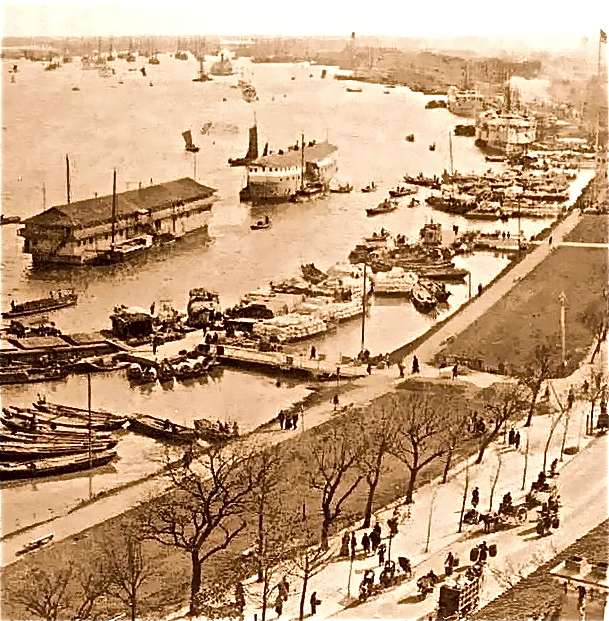
Opium Storage Ships - Canton Harbor |
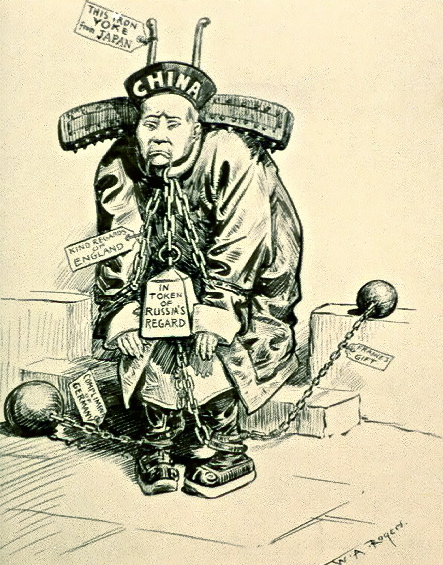 |
|

